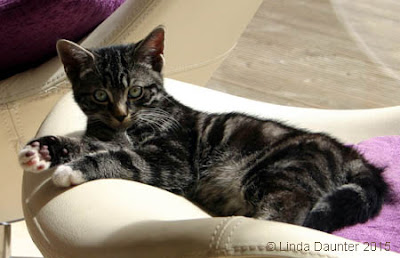I had no idea what to write for the first day of the
NaPoWriMo challenge. Luckily, they post an optional prompt for each day on
their website so I had a look at that. Today’s prompt was to write a LUNE.
It’s a three line poem with
five syllables in
the first line
three in the second
and five in the last line
or you can use five, three and five whole words instead of
syllables.
I tried the word version first:
Write a lune they said
so I did
but is it a poem?
(My answer was ‘No!’)
After much pondering and editing I came up with this one
counting the syllables:
In soft lunar light
courting loons
sing sweet lunes of love.
And then I tried both forms using the same idea:
(words) April the
artist splashes pink
and white blossom
all over her brightest greens.
(syllables) April
paints pink and
white blossom
on her brightest green.
Not happy with any of them, but it’s a start!






